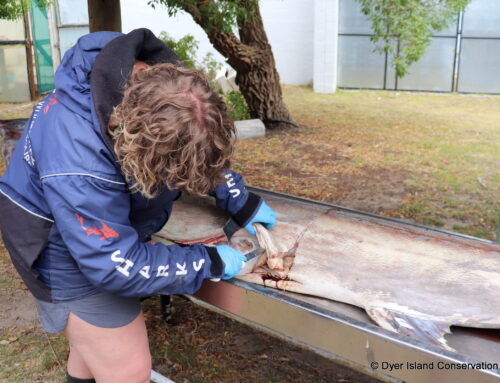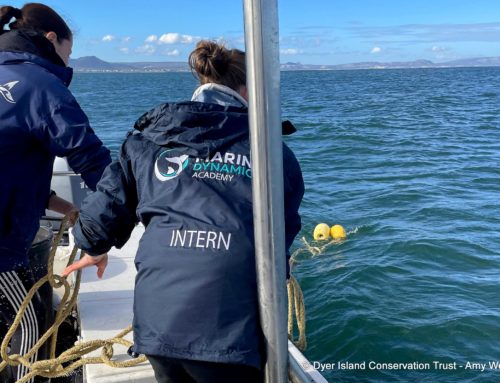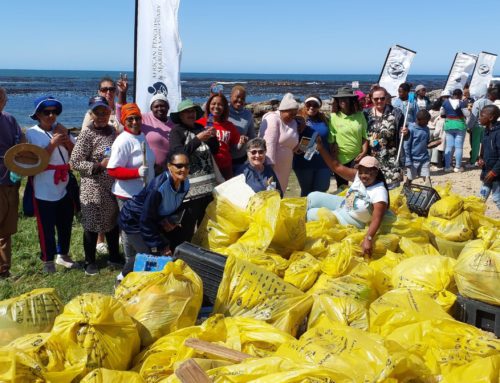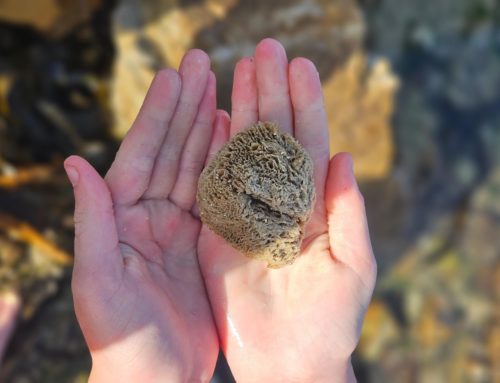On Friday 13th of September, a Shortfin mako shark (Isurus oxyrinchus) was retrieved by the Dyer Island Conservation Trust and Marine Dynamics Academy team from Die Dam. Local residents alerted the team of the stranding the evening of 12 September, where the Mako could be seen in good condition.
Operations manager, Hennie Otto, marine biologist, Amy Webber and Marine Dynamics Academy volunteers made their way towards Die Dam, where the shark was stranded nearshore along the rocks. Upon arrival, the jaw had unfortunately already been removed, however the rest of the shark was still intact allowing for further measurements.
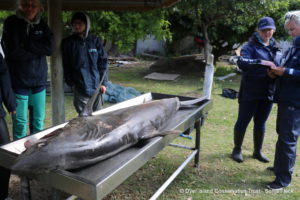
Before removal, initial observations and measurements were made, identifying the shark as a male individual at 2.28m. A cousin of the Great white shark, these sharks can reach lengths of 4m and are the fastest known shark species with sprinting capabilities just shy of 75km/h.
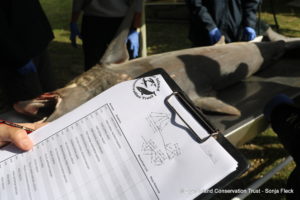
The shark was loaded up and taken to the International Marine Volunteer Lodge for further analysis. The dissection was led by marine biologist, Amy Webber, assisted by lead shark guide Susy Alexandersen and photographed by guide Sonja Fleck, with Academy volunteers present. A total of 103 measurements were taken. Physical inspection of the shark showed a small hole and slit on the right hand side of the shark below the gills, a possible indication of landing and removal of a fishing hook, the probable cause of death.
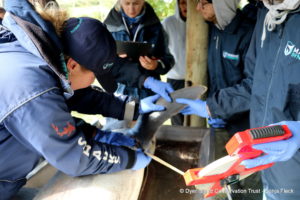
The necropsy was conducted, with all organs in good condition and intact. The liver, one of the largest organs within sharks, assists the animals with their buoyancy as they lack a swim bladder as found with bony fish. Inspection of the stomach contents found no evidence of recent prey. Mako sharks are an offshore species and have a broad dietary range of bony fish, smaller sharks and bird species.
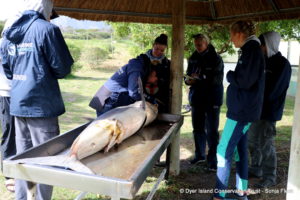
Samples of the dorsal fin, pectoral fin and muscle were taken. The vertebral column of the shark was exposed, to demonstrate the aging process of sharks. Much like trees, vertebral rings indicate the age of the shark. Unlike other fish species, the Mako, and other shark or ray species, belong to the Elasmobranch subclass, who have a cartilaginous skeleton as opposed to bone.
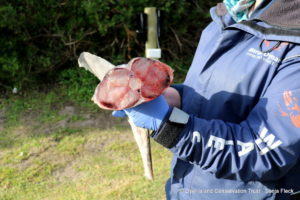
For many shark species, the effects of fishing are detrimental to their population stability. Whether targeted fishing, removal of food sources or the non-selective methods of trawling and longliners causing by-catch, a third of global shark species face extinction. Slow reproductive rates across many species result in reduced abilities to recover from the high rate of deaths. Avoiding shark products and ensuring your fish is sourced sustainably (see https://wwfsassi.co.za/) are one of the many ways to reduce these pressures on the “doctors” of our oceans.
We extend our gratitude towards those that alert us of any strandings, rare occurrences like these are vital to long-term research into the biology and ecology of shark species that inhabit our waters.

